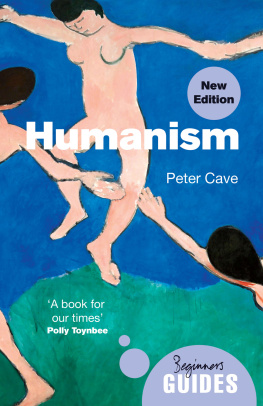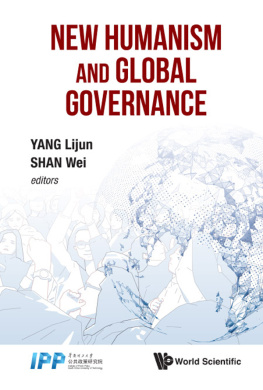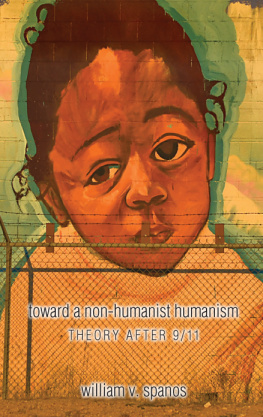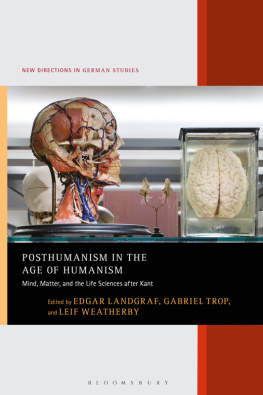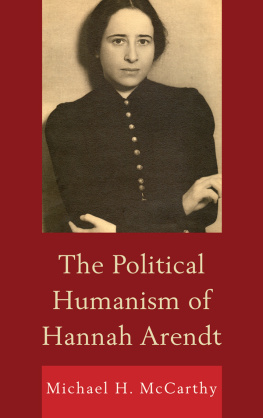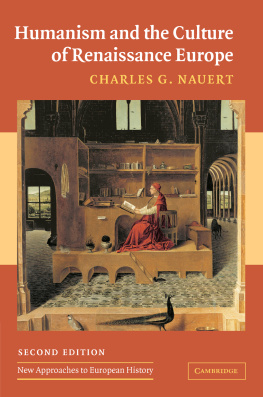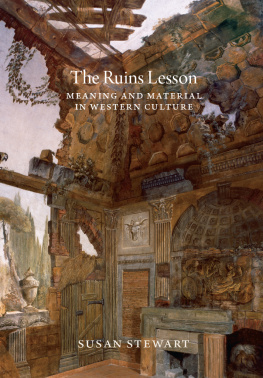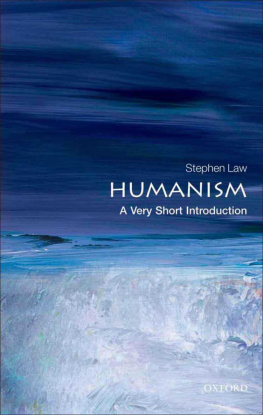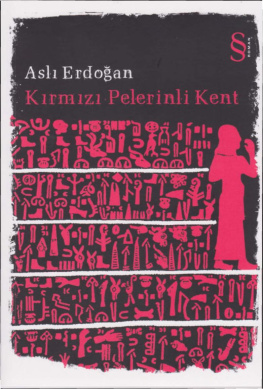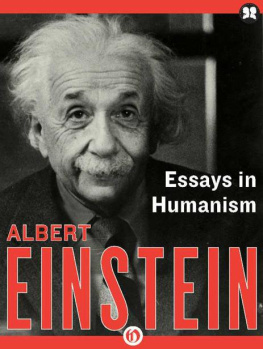Aslı Iğsız - Humanism in Ruins
Here you can read online Aslı Iğsız - Humanism in Ruins full text of the book (entire story) in english for free. Download pdf and epub, get meaning, cover and reviews about this ebook. year: 2018, publisher: Stanford University Press, genre: Politics. Description of the work, (preface) as well as reviews are available. Best literature library LitArk.com created for fans of good reading and offers a wide selection of genres:
Romance novel
Science fiction
Adventure
Detective
Science
History
Home and family
Prose
Art
Politics
Computer
Non-fiction
Religion
Business
Children
Humor
Choose a favorite category and find really read worthwhile books. Enjoy immersion in the world of imagination, feel the emotions of the characters or learn something new for yourself, make an fascinating discovery.

Humanism in Ruins: summary, description and annotation
We offer to read an annotation, description, summary or preface (depends on what the author of the book "Humanism in Ruins" wrote himself). If you haven't found the necessary information about the book — write in the comments, we will try to find it.
Humanism in Ruins — read online for free the complete book (whole text) full work
Below is the text of the book, divided by pages. System saving the place of the last page read, allows you to conveniently read the book "Humanism in Ruins" online for free, without having to search again every time where you left off. Put a bookmark, and you can go to the page where you finished reading at any time.
Font size:
Interval:
Bookmark:
HUMANISM IN RUINS
Entangled Legacies of the Greek-Turkish Population Exchange
Asl Isz
Stanford University Press
Stanford, California
Stanford University Press
Stanford, California
2018 by the Board of Trustees of the Leland Stanford Junior University. All rights reserved.
No part of this book may be reproduced or transmitted in any form or by any means, electronic or mechanical, including photocopying and recording, or in any information storage or retrieval system without the prior written permission of Stanford University Press.
Printed in the United States of America on acid-free, archival-quality paper
Library of Congress Cataloging-in-Publication Data
Names: Isz, Asl, 1971- author.
Title: Humanism in ruins : entangled legacies of the Greek-Turkish population exchange / Asl Isz
Description: Stanford, California : Stanford University Press, 2018. | Includes bibliographical references and index.
Identifiers: LCCN 2017058848 | ISBN 9781503606357 (cloth : alk. paper) | ISBN 9781503606869 (pbk. : alk. paper) | ISBN 9781503606876 (epub)
Subjects: LCSH: Population transfersTurksHistory20th century. | Population transfersGreeksHistory20th century. | Collective memoryPolitical aspectsTurkey. | MulticulturalismTurkey. | TurkeyCultural policy. | TurkeyPolitics and government. | HumanismHistory20th century. | BiopoliticsHistory20th century.
Classification: LCC DR590 .I35 2018 | DDC 304.809561/09042dc23
LC record available at https://lccn.loc.gov/2017058848
Cover design: Black Eye Design | Michel Vrana
Cover photos: The Parthenon with scaffolding; Greek and Armenian refugee children from Anatolia standing outside one-story building, near Athens, Greece; Frank Carpenter with arms around a column, Greece. Library of Congress.
Typeset by Bruce Lundquist in 10.25/15 Adobe Caslon
Whoever has emerged victorious participates to this day in the triumphal procession in which current rulers step over those who are lying prostrate. According to traditional practice, the spoils are carried in the procession. They are called cultural treasures, and a historical materialist views them with cautious detachment. For in every case, these treasures have a lineage which he cannot contemplate without horror. They owe their existence not only to the efforts of the great geniuses who created them, but also to the anonymous toil of others who lived in the same time period. There is no document of culture which is not at the same time a document of barbarism. And just as such a document is never free of barbarism, so barbarism taints the manner in which it was transmitted from one hand to another.
Walter Benjamin, Theses on the Philosophy of History, 1940
CONTENTS
ACKNOWLEDGMENTS
The present book represents a departure from my earlier research, and although the theme of the 1923 Greek-Turkish population exchange connects my earlier work to this volume, the research and sources I engage here are almost entirely new with a very few exceptionsand even then, my interpretation of them is quite different. In this process, I have benefited from the input and support of wonderful people. Although I acknowledge their specific contributions to this book in the endnotes, there are some others whose names I shall address specifically here for their input in relation to the publication of this book.
I am very grateful to Jane Burbank, Frederick Cooper, Kader Konuk, Zachary Lockman, Anton Shammas, Ella Shohat, Helga Tawil-Souri, and my former chair Zvi Ben-Dor Benite for their mentorship in the process of writing this book. My current chair Marion Katzs insights were invaluable. Aomar Boum, Asl Gr, Farzin Vejdani, and my writing group have offered invaluable support of the writing process itself. I am forever indebted to Elif Sar, who is an extraordinary person and research assistant. Begm Adalet, Ismail Aji Alatas, Mikiya Koyagi, Zachary Lockman, Eduardo Matos Martn, Joanne Nucho, Ceren zgl, Aye Parla, and Sara Pursley graciously read different parts and versions of the manuscript for this book and gave me remarkable comments. My students at New York University also provided wonderful feedback on different versions of my work, and I thank them all, together with Lucia Carminati at the University of Arizona. I thank Ilker Hepkaner for reading the book even though he was not in my class anymore. Their specific contributions are acknowledged in the endnotes, but suffice it to say that their intellectual rigor helped me become the best teacher and writer that I can be. I also thank Guy Barak for his generous help at the NYU library. Finally, I am most grateful to my interlocutors. Thank you for opening your archives, memories, and hearts to me.
I feel extremely fortunate to have worked with the Stanford University Press, and thank Kate Wahl for her insights, support, and feedback: it is a privilege to work with you. In addition, I am very grateful to Jessica Ling and Leah Pennywark for their exceptional work, and to Richard Gunde for being such an outstanding editor. I also would like to thank the anonymous reviewers for their excellent feedback and comments, and the time and labor they put into reading and considering my book. Thank you.
Parts of this book were presented at Princeton University, New York University, and the New School, and at meetings of the American Anthropological Association and the American Comparative Literature Association. I thank the audience for their excellent questions and helpful comments.
I am blessed with a wonderful family that has put up with so much in the process of writing this book. My brother, Hakan, always kept things in perspective. My parents rarelyif at allagreed with anything I said, but always respected my position and supported me unconditionally. I hope one day I can be as good a parent as they have been to me. Eduardo and Marco, thank you for all the joy and happiness you brought into my life. Although Marco did not understand why his mother took so long to write a chapter book (when he could write so many himself), his enthusiasm motivated me beyond words. Eduardo and Marco, without you, this book could simply not exist. For this, and for everything else, I dedicate this book to you.
BY WAY OF AN INTRODUCTION
The Entangled Legacies of a Population Exchange
WHEN WE ARRIVED, FOA WAS IN RUINS said Rait Kemali Bonneval. Bonneval, a Muslim from Lemnos, Greece, and his family were relocated to Foa, Turkey, as part of the 1923 Greco-Turkish compulsory population exchange. With varying degrees of accuracy, these texts sought to piece together Bonnevals life.
Only fragments remain of this rich, adventurous life today: Comte de Bonneval/Humbarac Ahmet Paas museumized room (the Chamber of the Pasha in the family chateau in France); his tomb in the Galata Mevlevi Lodge in Istanbul; his letters scattered to different corners, included in different volumes and novels; and his family trajectories, each branch claiming relation to him. These family trajectories are also spread across different geographies and include the Bonneval family in France in addition to others sent to Turkey from Greece as part of the population exchange, such as Rait Kemali.
Multi-sited research is needed to make sense of Count Bonnevals multiple lives as well as his Ottoman family. According to some French sources, Bonneval had adopted his aide in the Ottoman Empire, Sleyman Aghaanother European convert to Islam.and the extent to which Western European authors went to address his conversion to Islam with exaggerated, fake, or romanticized accounts, there is reasonable doubt about the veracity of these claims.
How does one, then, approach, trace, and consider family histories, and where and when does one anchor family heritage exactly? How many languages are necessary to unlock family histories buried in the past? These questions are further complicated by forced migration. In the context of Turkey, the official adoption of the Latin alphabet in 1928 adds to this complication, as speakers of modern Turkish today need special training to read Ottoman texts, written in the Arabic script, and have limited access to family-related documents. The case of Bonneval and related family narratives exemplify the dynamics of Turkeys public domain in the 1990s and early 2000s. Tracing family histories and cultural heritage to lost maps of designated origin has marked the exchangees of that time. And as was the case with Rait Kemali, the exchangees made decisions on where to anchor their originsfor how far one is willing to go in designating origins is a personal choice. It is also as part of this general trend that Rait Kemali Bonnevals family history has surfaced in the public domain.
Next pageFont size:
Interval:
Bookmark:
Similar books «Humanism in Ruins»
Look at similar books to Humanism in Ruins. We have selected literature similar in name and meaning in the hope of providing readers with more options to find new, interesting, not yet read works.
Discussion, reviews of the book Humanism in Ruins and just readers' own opinions. Leave your comments, write what you think about the work, its meaning or the main characters. Specify what exactly you liked and what you didn't like, and why you think so.

